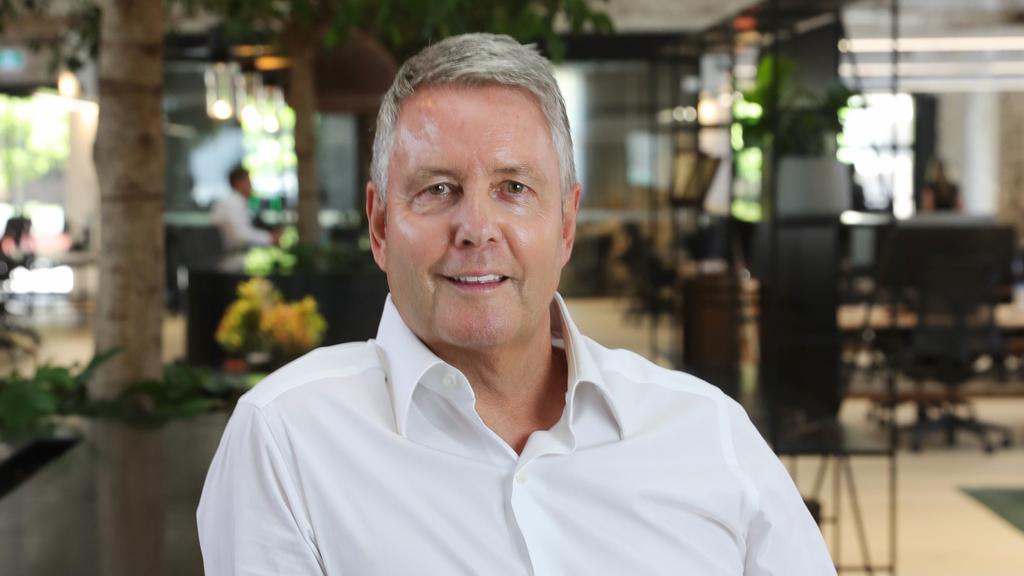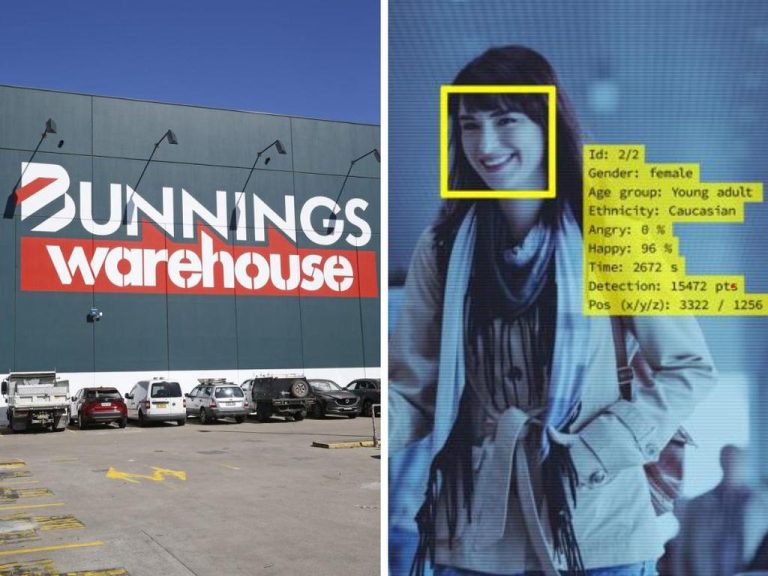Billionaire Greg Goodman is ready for the next AI wave with huge new data centres

Goodman Group chief executive Greg Goodman. Picture: John Feder/The Australian.
The Goodman Group is rapidly becoming a force in the global data centre industry as it rolls out more facilities in Australia and offshore to meet demand driven by the artificial intelligence revolution.
The company is stepping up its moves to lock in partners to back the development of huge new complexes around the world, establishing a new partnership in Australia and preparing to launch another in Europe as it heads towards a $15bn workbook.
The property company turned in a 13 per cent lift in operating profit to $2.31bn and, taking into account a $4bn equity raising earlier this year, this equated to a 9.8 per cent lift in operating earnings per security to 118c.
The company had a statutory net profit of $1.67bn, partly on the back of the recovery in property values, and signalled that it was stocking up for the next logistics boom, including buying sites in Australia. The company’s portfolio is growing fast and hit $85.6bn, a 9 per cent rise over the year as the company both bought new sites via its funds empire and also benefited from $1.6bn in revaluation gains.
The company is winning backers as it has a huge $12.9bn work in progress book, which is forecast to generate a yield of 7.5 per cent and it has a global power bank of 5GW across 13 global cities, of which 2.7GW is secured and 2.3GW is in advance stages of being procured.
The company said a mix of global opportunities and its strong capital position should support future earnings and it was targeting operating EPS growth of 9 per cent for fiscal 2026. This equates to more than $2.6bn of operating profit.
The company’s billionaire chief executive Greg Goodman said it was bullish about the fast-changing industry, as it was getting harder for new entrants because it was tough to lock down power supplies.
“Any new power primarily has to be infrastructure built by the utilities and the operators,” Mr Goodman said. “That is also creating a bigger barrier to getting things done in a quicker time-frame.”
He said the metropolitan locations the company had in cities like Paris and Los Angeles were hard to replicate.
Mr Goodman said data centre infrastructure was capital intensive, and the “people with the capital will do very well”.
“You’re talking about a billion a throw, or a billion-and-a-half a throw, in regard to cost. So capital is critical, otherwise everything else becomes a little bit irrelevant,” he said.
The company flagged that pension funds would be given a chance to participate via partnerships. The Australian partnership would contain a centre in the Sydney suburb of Artarmon, while the European partnership was to have a number of data centres.
Mr Goodman emphasised the importance of having sufficient capital to ensure that “you are not beholden to financial institutions” when developing the huge centres. He said the company would capitalise on the land sitting on its own balance sheet at historic cost.
On the logistics front, Goodman had bulked up in Sydney with the purchase of a $575m site beside the new airport that will become a multibillion-dollar logistics hub.
“We’ve seen what’s happened with western Sydney land values, that’s why we’re pretty happy to pick up that site out by the second airport,” Mr Goodman said. He said the site could accommodate larger complexes of up to 60,000sq m, allowing for advanced technologies.
“The big sheds of the future, there will be no one working in them; they’ll be all robotic. There’ll be AI software-generated,” he said.
Citi analysts said the company emphasised its focus on capital partnerships and customers this financial year and expected it to make strong progress on funding its data centre pipeline.
They said the area was now the top driver of growth and future earnings per security.
The company is rising with powerful tailwinds, including the growth of AI, greater automation and the growth of cloud computing, which is helping drive demand for both logistics and data centres.
eToro market analyst Josh Gilbert said the real story was its rapid shift into data centres.
“Goodman is no longer just a REIT, it’s becoming one of the world’s most critical digital landlords. With AI and cloud computing booming and big tech pouring hundreds of billions into the biggest technology revolution we’ve seen in decades, Goodman’s strategy positions it to deliver outsized returns compared to its traditional core,” he said.
Goodman securities closed down 1.4 per cent at $35.62.







